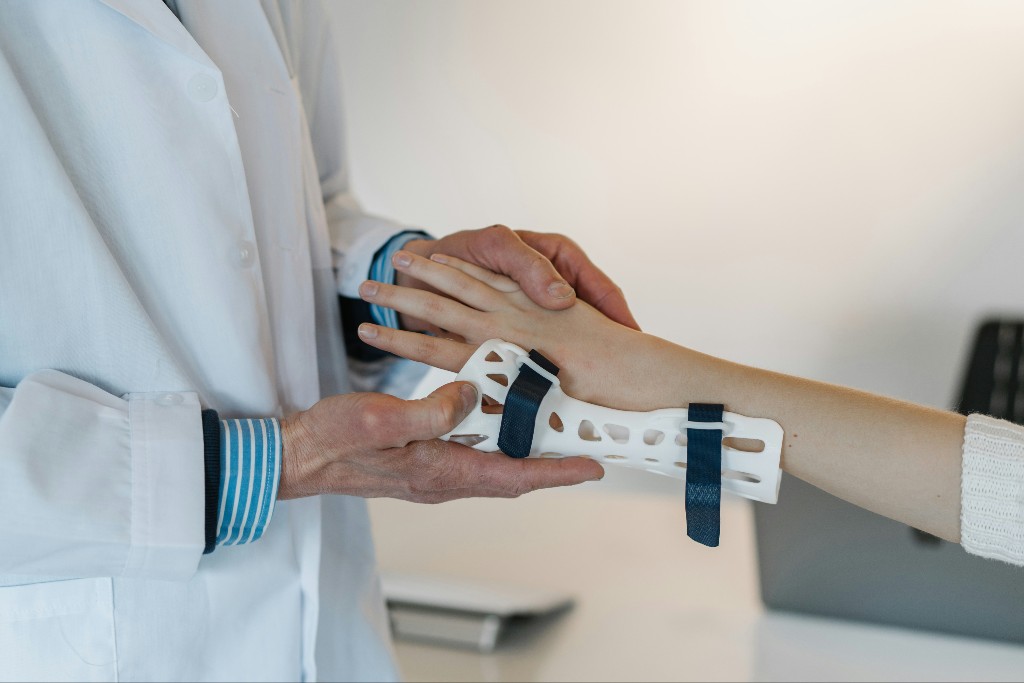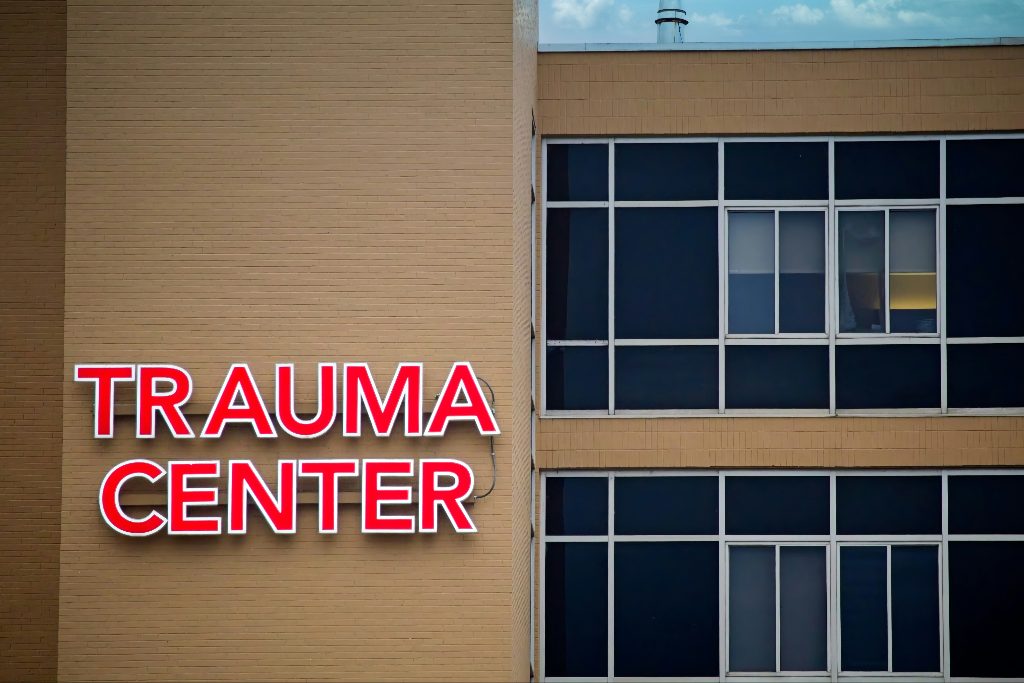¿Has empezado a experimentar dolor y rigidez en uno de tus hombros? Tal vez experimentes molestias en el hombro y dificultad para alcanzar algo por encima de la cabeza. Hay muchos tipos de lesiones y problemas de hombro, pero uno de los más comunes suele denominarse hombro congelado. Capsulitis adhesiva es el término oficial para hombro congelado y se refiere a una afección médica que suele empezar con dolor y molestias en la articulación del hombro y puede acabar impidiendo el movimiento del hombro y el brazo.
Si experimentas algún tipo de dolor articular o notas que no puedes realizar ciertos movimientos como antes, acude a Fisioterapia Atlanta para que te hagan un examen físico. A veces el dolor articular puede ser temporal y estar causado por algo tan sencillo como dormir en una postura incorrecta, mientras que otras veces el dolor puede ser un indicador de que está ocurriendo algo más grave, como un hombro congelado.
¿Qué es el hombro congelado?
En el ámbito médico, la capsulitis adhesiva se refiere a la inflamación y restricción del movimiento en la articulación del hombro. Esta afección se conoce más comúnmente como hombro congelado. El dolor en el hombro es uno de los primeros signos y síntomas del hombro congelado, pero si esperas a que el dolor desaparezca por sí solo, corres el riesgo de que esta afección afecte a la amplitud de movimiento de la articulación del hombro. Cuando las estructuras de la articulación del hombro se agravan o inflaman, pueden restringirse determinados movimientos.
La articulación del hombro es una articulación esférica en la que se unen tres huesos: el hueso superior del brazo (húmero), el omóplato (escápula) y la clavícula. El húmero tiene un pomo redondeado en la parte superior que encaja en una cavidad poco profunda a lo largo del omóplato. La cápsula del hombro está formada por fuertes tejidos conjuntivos que rodean la articulación y ayudan a que funcione correctamente. Cuando la articulación se agrava, la cápsula del hombro puede empezar a engrosarse y tensarse, provocando rigidez y dolor.
¿Cómo se siente el hombro congelado?
El primer signo de hombro congelado comienza con dolor y molestias en la articulación del hombro. Luego, empezarás a notar que la articulación del hombro parece rígida y más difícil de mover sin que empeoren el dolor y las molestias. Con el tiempo, el hombro congelado puede evolucionar hasta el punto de que empieces a perder la capacidad de mover el brazo y el hombro en determinadas direcciones, o pierdas totalmente la movilidad en la zona. Hay tres fases del hombro congelado, porque los síntomas de esta enfermedad tienden a desarrollarse lentamente.
Las 3 fases del hombro congelado
He aquí las 3 fases del hombro congelado y lo que cabe esperar en cada una de ellas.
Fase de congelación
La fase de congelación se refiere al comienzo del hombro congelado, cuando empiezan a aparecer el dolor y la rigidez. Ciertos movimientos pueden empeorar ese dolor y esas molestias, y puedes empezar a evitar ciertos movimientos por este motivo. Durante esta etapa, empezarás a perder lentamente la amplitud de movimiento de la articulación del hombro. El dolor empeorará cada vez más con el tiempo, y esta etapa dura una media de seis semanas.
Etapa Congelada
Cuando entres en la fase de congelación, puede que experimentes menos dolor, aunque la rigidez seguirá molestando a la articulación del hombro. A medida que la articulación siga agarrotándose, dificultará ciertos movimientos del brazo y el hombro. La fase de congelación puede durar de 4 a 6 meses, lo que puede afectar significativamente a tus rutinas y actividades diarias.
Fase de descongelación
La fase de descongelación del hombro congelado se refiere al momento en que empiezas a recuperar la amplitud de movimiento de la articulación del hombro. Tu movilidad empezará a mejorar, y es posible que empieces a realizar tareas que antes no podías. A medida que empieces a recuperar el movimiento en la articulación del hombro, también podrás recuperar la fuerza normal en la zona. La fase de descongelación puede durar entre seis meses y dos años para que recuperes la amplitud de movimiento completa en la articulación del hombro afectado.
¿Qué causa el hombro congelado?
El hombro congelado no siempre tiene una causa obvia, aunque se da con más frecuencia en personas que han restringido recientemente el movimiento del hombro debido a una operación o lesión reciente. La inmovilidad prolongada o reducida puede agravar los huesos, ligamentos y tendones que componen la articulación del hombro. Si las partes de la articulación del hombro se debilitan mientras te curas de una lesión o intervención quirúrgica en el hombro o el brazo, la cápsula del hombro puede engrosarse y tensarse alrededor de la articulación, restringiendo el movimiento y afectando a la amplitud de movimiento. Entre las lesiones comunes de brazo y hombro que pueden requerir una movilidad reducida o una inmovilización completa se incluyen una lesión del manguito rotador o una fractura de brazo. También puede acumularse tejido cicatricial tras una lesión en la articulación del hombro o alrededor de ella, lo que también puede ejercer presión sobre las estructuras de la articulación del hombro y restringir el movimiento. La recuperación de una intervención quirúrgica, como una mastectomía, también puede requerir una movilidad reducida de las articulaciones del hombro y del brazo como parte del proceso de curación. Un ictus reciente también puede hacerte más susceptible de desarrollar hombro congelado.
Factores de riesgo comunes
Además de la movilidad reducida o la inmovilidad reciente por intervención quirúrgica o lesión, otros factores de riesgo comunes del hombro congelado son la edad, el sexo y determinadas afecciones y enfermedades médicas. Las personas mayores de cuarenta años tienen mayor riesgo de desarrollar hombro congelado, y esta afección es más frecuente en las mujeres. Algunas enfermedades que pueden aumentar el riesgo de hombro congelado son la diabetes, las enfermedades cardiovasculares, la tuberculosis, el tiroides hiperactivo, el tiroides hipoactivo y la enfermedad de Parkinson. La diabetes y el hombro congelado suelen estar relacionados porque los niveles de azúcar en sangre pueden afectar a la proteína conocida como colágeno, que compone el tejido conjuntivo de la cápsula del hombro.
¿Cómo se diagnostica el hombro congelado?
Si empiezas a experimentar dolor y rigidez en el hombro que dificultan cada vez más los movimientos, habla con tu médico lo antes posible. Para confirmar el diagnóstico de hombro congelado, tu médico querrá revisar tu historial médico, realizar una exploración física y también puede utilizar pruebas de diagnóstico por imagen para ver mejor la zona afectada.
Historial médico
Tu historial médico ayudará a tu médico a determinar tus factores de riesgo de desarrollar hombro congelado. Es importante tener en cuenta cualquier lesión o intervención quirúrgica reciente, aunque no haya afectado directamente a tu hombro. Por ejemplo, si te estabas recuperando de una intervención quirúrgica que te obligó a reducir la movilidad de la parte superior del cuerpo, es posible que tus hombros y otras articulaciones hayan desarrollado rigidez y se hayan debilitado durante ese tiempo. Tu médico también querrá saber si padeces determinadas afecciones médicas que te hacen más propensa a desarrollar hombro congelado, como diabetes o enfermedad de Parkinson. Las mujeres con problemas de tiroides también pueden ser más propensas al hombro congelado, por lo que es posible que tu médico quiera ver los resultados de pruebas de laboratorio recientes para tener una mejor indicación de estos importantes detalles de salud.
Examen físico
A continuación, tu médico querrá hacerte una exploración física. Durante la exploración física, el médico querrá saber dónde experimentas dolor y otros síntomas. También querrá establecer una línea de base sobre los movimientos que puedes realizar, tu amplitud de movimiento actual en la articulación del hombro y si tus síntomas empeoran o no con determinados movimientos. Por ejemplo, el médico puede pedirte que mantengas el brazo estirado, lo levantes por encima de la cabeza y lo gires hacia atrás antes de volver a girarlo. También puede pedirte que levantes el brazo hacia un lado, paralelo al suelo, y que pruebes determinados movimientos del hombro y del brazo desde esta posición.
Pruebas diagnósticas por imagen
Las pruebas de diagnóstico por imagen también pueden proporcionar a tu médico más información sobre lo que ocurre en la articulación del hombro. Por ejemplo, las radiografías de la articulación del hombro pueden ayudar a descartar cualquier fractura o hueso roto, porque estas exploraciones proporcionan imágenes en blanco y negro de los huesos y cartílagos del cuerpo. También es posible que tu médico quiera hacerte un TAC o una resonancia magnética para ver con más detalle los huesos y los tejidos blandos que componen la articulación del hombro, como los ligamentos, los tendones y la cápsula del hombro. Estas exploraciones también pueden ayudar a descartar otros posibles diagnósticos y causas de tus síntomas.
¿Qué opciones de tratamiento existen para el hombro congelado?
Si crees que estás desarrollando hombro congelado, entonces habla con tu médico fisioterapeuta de Atlanta para empezar enseguida con opciones de tratamiento eficaces. La fisioterapia para el hombro congelado puede ayudar a aliviar el dolor y a devolver el movimiento y la fuerza al hombro afectado. La mayoría de los casos de hombro congelado requerirán la intervención médica de un médico para evitar complicaciones como el dolor crónico. Para recuperar toda la amplitud de movimiento de tu hombro afectado, aquí tienes estrategias de tratamiento para el hombro congelado.
Controlar y aliviar el dolor
Parte del proceso de tratamiento del hombro congelado consistirá en controlar y aliviar el dolor de hombro. Durante la fase de congelación, los analgésicos de venta libre pueden ayudar a reducir el dolor y la inflamación de las articulaciones. Tu médico también puede recomendarte medicamentos recetados o inyecciones para ayudarte a controlar y aliviar el dolor. Se ha aprobado el uso de inyecciones de esteroides, como los corticosteroides, para controlar el dolor en algunos casos de hombro congelado. Además de los medicamentos, la fisioterapia para el hombro congelado también puede ayudar a reducir el dolor y las molestias de forma natural, con estiramientos suaves para ayudar a reducir la rigidez y mejorar la circulación en la zona.
Restablecer la amplitud de movimiento
Durante y después de la fase de congelación, en la que la articulación del hombro se ha agarrotado y limita muchos movimientos cotidianos, tu fisioterapeuta puede ayudarte a recuperar la amplitud de movimiento. Un hombro congelado o rígido puede impedir que te apoyes eficazmente en la articulación del hombro, que en realidad es la articulación con mayor amplitud de movimiento de todo el cuerpo. La fisioterapia del hombro congelado trabaja para restablecer tu amplitud de movimiento con estiramientos y ejercicios suaves y seguros que te ayuden a mejorar la movilidad.
Estirar y ejercitar la articulación
La fisioterapia para el hombro congelado incluirá estiramientos y ejercicios dirigidos al hombro y brazo afectados. Puede incluir una combinación de estiramientos pasivos y activos. Los estiramientos pasivos se refieren a estiramientos asistidos en los que puedes relajar los músculos y permitir que el fisioterapeuta mueva el brazo en determinadas direcciones. También puedes utilizar soportes para ayudar a estirar determinados músculos del brazo y el hombro. Fortalecer el manguito rotador ayudará a proporcionar más estabilidad a la articulación del hombro. Cuando trabajes con un fisioterapeuta para el hombro congelado, podrás realizar estiramientos y ejercicios en cada fase de la enfermedad para ayudar a reducir los síntomas y el tiempo de recuperación.
3 señales de que el hombro congelado está empezando a descongelarse
He aquí 3 signos de que tu hombro congelado está empezando a descongelarse.
1. Disminución de la rigidez del hombro
Uno de los primeros signos de que tu hombro congelado está empezando a descongelarse es que empiezas a notar que ya no está tan rígido como antes. A medida que el hombro empieza a aflojarse, también puedes notar una disminución de la tensión en el hombro, el brazo e incluso el cuello y la espalda. Una vez que la cápsula del hombro pierde su rigidez, empezarás a recuperar lentamente ciertos movimientos.
2. Recuperar los movimientos perdidos
Una vez que pases a la fase de descongelación, empezarás a recuperar movimientos que puedes haber perdido temporalmente. Por ejemplo, muchas personas pierden la capacidad de levantar los brazos hasta cierta altura. Si durante la etapa de congelación no eras capaz de levantar el brazo hasta ponerlo en paralelo con el hombro para coger determinados objetos que tenías delante, es posible que empieces a recuperar estos movimientos que antes formaban parte de tu rutina diaria.
3. Mejora de la amplitud de movimiento
A medida que tu hombro congelado empiece a descongelarse, también notarás una mejora en tu amplitud de movimiento. Como la articulación del hombro es tan móvil, la mejora de la amplitud de movimiento puede empezar a repercutir en tu vida diaria de forma significativa. Es posible que puedas empezar a extender completamente el brazo hacia un lado, delante de ti, e incluso empezar a estirarlo por encima de la cabeza. Cuando empieces a ver mejoras en tu amplitud de movimiento, asegúrate de hablar de estos movimientos con tu fisioterapeuta para evitar excederte. Tu fisioterapeuta puede ayudarte a superar la fase de descongelación para que puedas curarte eficazmente y prevenir el desarrollo futuro del hombro congelado.
¡ Haremos de tu hombro nuestra prioridad! Visita AICA Ortopedia para fisioterapia de hombro congelado y descubre cómo puede ayudarte nuestro equipo de fisioterapeutas en tu localidad más cercana.
Fuentes
Chan HBY, Pua PY, How CH. Fisioterapia en el tratamiento del hombro congelado. Singapore Med J. 2017 Dec;58(12):685-689. doi: 10.11622/smedj.2017107. PMID: 29242941; PMCID: PMC5917053.
Cho, C. H., Bae, K. C. y Kim, D. H. (2019). Estrategia de tratamiento del hombro congelado. Clínicas en cirugía ortopédica, 11(3), 249-257. https://doi.org/10.4055/cios.2019.11.3.249
Uppal, H. S., Evans, J. P. y Smith, C. (2015). Hombro congelado: Una revisión sistemática de las opciones terapéuticas. Revista Mundial de Ortopedia, 6(2), 263-268. https://doi.org/10.5312/wjo.v6.i2.263





